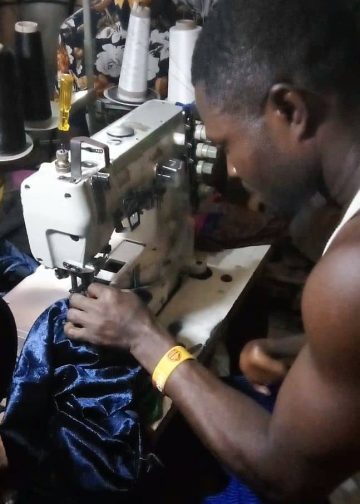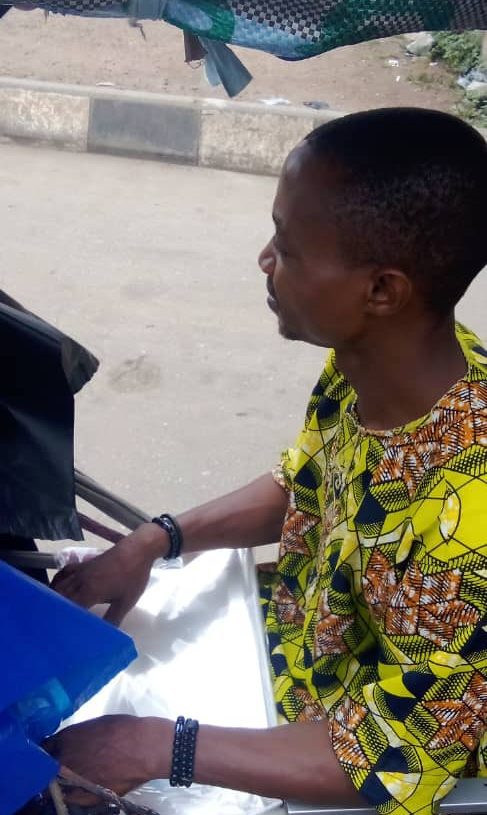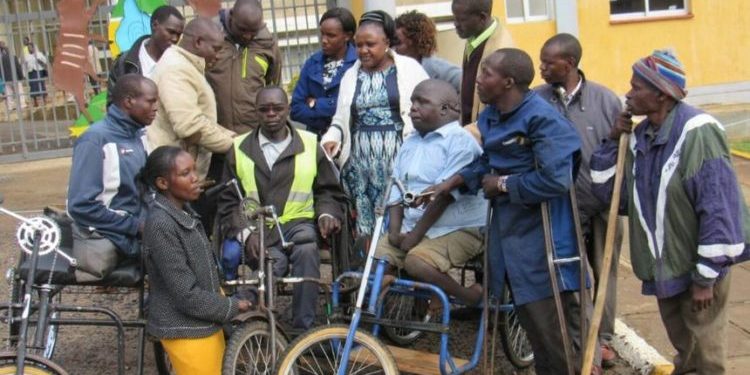In Nigeria, persons with disabilities (PWDs) face significant barriers to employment and economic inclusion, despite various laws and policies designed to protect their rights. The lack of accessible infrastructure, inadequate educational opportunities, and societal stigma often combine to limit their chances of securing meaningful work. Although the Discrimination Against Persons with Disabilities (Prohibition) Act of 2018 seeks to address some of these issues, its implementation remains inconsistent across the country. As a result, many PWDs continue to struggle with unemployment, underemployment, and a lack of adequate support systems, leaving them dependent on family members or charitable organizations for survival.
The informal sector has become a refuge for many PWDs, who often develop entrepreneurial skills out of necessity. However, even within this sector, they face challenges such as limited access to capital, tools, and markets. Furthermore, the widespread societal discrimination they endure complicates their ability to grow their businesses or gain formal employment.
Despite these obstacles, individuals like Patrick Knowledge, Abdullahi Usman, Hassan Abdullahi, and Ahmed Suleman continue to show remarkable resilience and determination, working tirelessly to create better futures for themselves and their families while advocating for broader systemic change.
Patrick Knowledge, a man with a physical disability and a fashion designer offers his inspirational tale of overcoming adversity. Knowledge, who was amputated at the age of six while in primary school recounted the discrimination he experienced, a lack of education, and financial difficulties.

Despite these challenges, Knowledge was able to overcome abuse and neglect and acquire new skills. He gained access to free schooling from basic three to primary six, but in secondary school, he continued to struggle since there was no government intervention and he lost his father to death during that time. His condition cost him chances, such as working as a staff member at Tinu Hospital in Isolo, Lagos, and as a secretary to a local government councillor. Despite discrimination and unemployment, he persisted in learning new talents and developed his abilities while continuing to rely on God for direction.
Knowledge stated that the abuse and neglect he endured as a result of his impairment, which he blames on others who have taken advantage of his predicament, are his source of motivation. He experienced financial issues brought on by hunger, lengthy trip distance stress, a lack of support, and the difficulty of coming up with a plan of action. He recognized the potential in his impairment despite the discouragement of people around him.
He said: “The difficulty of studying tailoring stemmed from the lack of suitable locations and teachers. But as time went on, I was able to manage the technical aspects of the operational machinery.”
He struggled with his disability, including trekking, lack of support, and financial difficulties. Despite these challenges, he earned access to business areas in transit and prayed for God’s help to navigate their life with disabilities.
He said: “I have experienced numerous damages due to the excessive use of energy, leading to physical strain during two-handed work and excess fuel consumption, which often scares customers away. This has resulted in a lack of speed and efficiency in tasks. And, I am currently facing challenges such as scarcity of customers due to fear, slow work due to two-hand work, lack of capital for necessary machinery, and customer abuse.
In the hopes of receiving help one day, Knowledge depends solely on his income to access markets, networks, and resources as he is yet to receive any support from disability and entrepreneurial organizations or programs.
He also aspires to be a human rights activist, as he is interested in pursuing higher education and plans to study law, public communication, Igbo linguistics, and business administration.
In advocating for a government that gives priority to individuals with disabilities, ensuring they receive the required care and assistance, Knowledge said: “We want to be treated as first-class citizens, not second-class ones, by the government. As such government should ensure that a person with a disability feels capable, elevating the average man with a disability because there is ability in disability.”
Just like Knowledge, a middle-aged father of three, Abdullahi Usman, shares his story of the difficulties he has had to overcome to make ends meet. He is an expert tricycle driver and watch repairer.
He said: “People with mobility impairments, like him, receive little to no attention from society. Due to this, we only receive minimal assistance from good-hearted and caring Nigerians. It is common for people to try to give us discounts when we purchase goods from them, and bus drivers frequently do not charge us when we get on their buses. This is because they are pleased to see us acting like entrepreneurs.”
He finished his elementary schooling, yet he was still begging for nine years. Since then, he has tried a variety of businesses in an effort to make ends meet, but the effects of national inflation have affected his operations. But because he believes that begging is not a business, he is opposed to his children to see him begging. He thought about it for a while before giving up on begging.

Abdullahi stated that as at last year, an organization expressed interest in rendering some form of assistance to them in kind after witnessing their struggle. After speaking with some of them in an interview, the representatives of those organizations have not responded, despite having our contact information.
He emphasized that his failure to care for his children’s basic necessities has prevented them from attending school frequently, which has affected their educational performance. As a result, they do not benefit from the National Policy on Education (NPE), which strives to provide free education. His satisfaction at having his family relocate to Lagos was stated; he believes they will motivate him to work harder at his business ventures. Sadly, they reside in Jigawa State more specifically, the northern portion of the state.
He said: “I must take a stand and keep working hard like a man. If someone were to encounter a situation similar to mine, I would urge them to stop begging and look for a job or learn a survival skill. Work ethic is preferable to beg.”.
A father of two, Hassan Abdullahi, operates a small business but is now unable to purchase further items due to financial constraints.
He said: “The rising cost of items and their exorbitant price for the average person to purchase are among reasons why I am no longer in business. We gather the items with the intention of returning the money after sales, but the fact remains that we are not the exclusive owners of them. Even though we don’t receive a salary, we nevertheless strive to increase our revenue every day.”

As stated in the Federal Republic of Nigeria, 1999 Constitution as modified in Section 18 (1), which highlights the government’s obligation to offer free and compulsory education, Hassan was never granted the right to sit within the four walls of a classroom.
He stated that he has come across several individuals who made promises to assist them, particularly in the business realm, but they never followed through. He noted that would like to set up his business again as such uses this platform to ask the authorities and kind people to help him out.
Also, A physically challenged man, Ahmed Suleman, a father of four, narrates how he has been uneducated and skillless since birth.
Left with no option, Suleiman said he resrted into begging before he started selling wares.
He said: “Due to my medical condition, I couldn’t attend school like others at an early age. Despite my family’s efforts to find solutions, my leg condition remained unaffected.”

While acknowledging that begging is not a job, Ahmed said: “My motivation to start a business stemmed from my family’s concern about begging. I faced challenges due to their condition and still hope on God to send good people to help him out of his predicament”.
He mentioned that after sharing his life experiences with several organizations and small groups, they have not responded or offered him any support.
However, due to inflation, they stopped buying goods from the main market and now hawk other people’s goods for them, especially those that trust them.
Ahmed said: “The society does not value persons with disabilities. However, I won’t think twice to accept assistance from those who are prepared to donate things or money just so I may continue my business.
This story was done by Emmanuella Lekwauwa, MSc Student (2023/2024) of Mass Communication, University of Lagos, following the training on Disability Reporting facilitated by Blessing Oladunjoye, Publisher of BONews Service.


Life is very short so we need to care for each other For all over my life I’ve come to realize that there is ABILITY IN DISABILITY